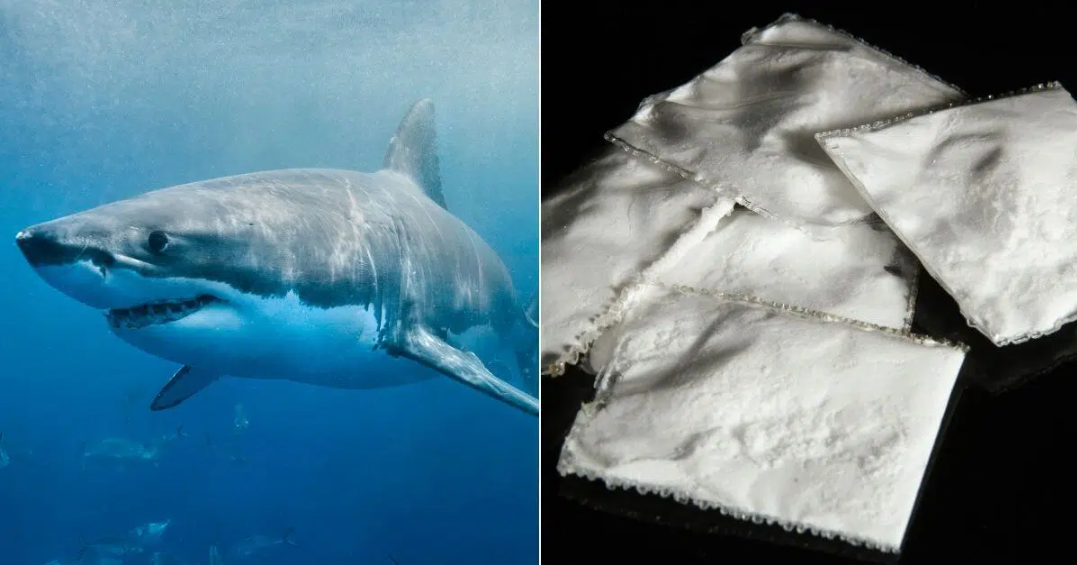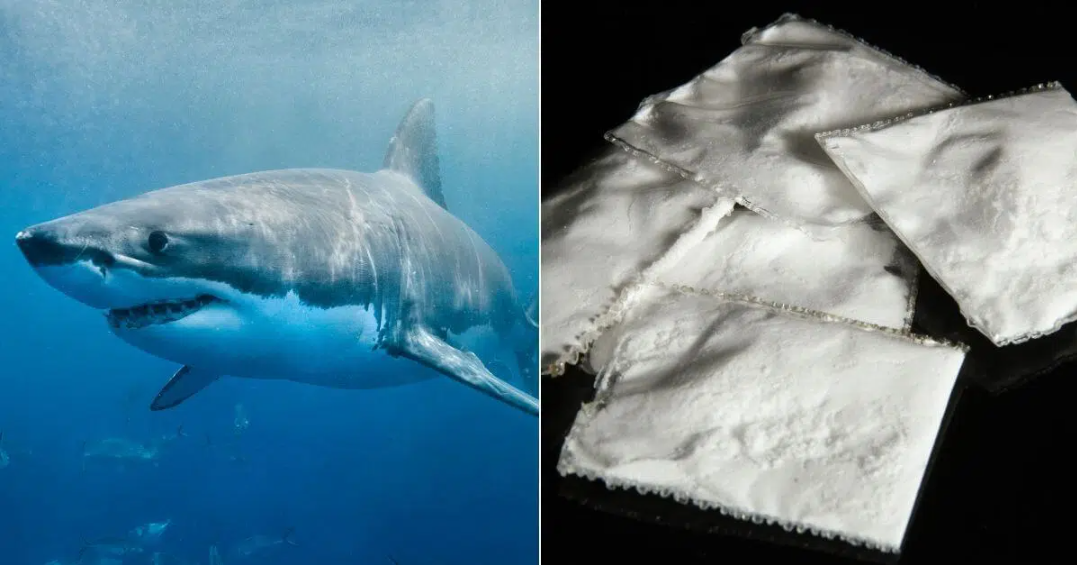海洋生物学家发现,里约热内卢海岸附近的鲨鱼可卡因检测呈阳性,这表明污水处理不当和非法毒品交易造成了令人担忧的环境问题。
Oswaldo Cruz基金会,一个著名的科学、技术和健康研究所,进行了这项开创性的研究,并发表在《全环境科学》上。
在将近三年的时间里,对13条尖鼻鲨进行了检测,发现它们的肌肉和肝脏组织中都含有大量的可卡因。
这些浓度比之前观察到的其他水生生物高出100倍。
研究人员认为,污染是由于处理不当的污水和隐藏的炼油操作,以及贩运者丢失或倾倒在水中的可卡因造成的。
国际奥委会环境健康评估和促进实验室的生物学家Rachel Ann Hauser-Davis说,需要进行具体的研究来确定这种污染对动物的确切影响。
她以肝脏在胚胎发育中的作用为例,表达了对鲨鱼生长、成熟和繁殖可能产生的影响的担忧。
作为确定污染对海洋生物影响的监测计划的一部分,这些样本是在2021年9月至2023年8月期间收集的。
鲨鱼作为顶级掠食者,在食物链中扮演着重要的角色,作为“哨兵物种”,可以提醒人类注意潜在的环境危害。
需要进一步的研究来确定可卡因对鲨鱼的具体影响,但过去的研究表明,抗抑郁药、重金属和节育药物等药物会污染水生生态系统。
特别是褐鳟,已被证明会对***胺上瘾,这引起了人们对鲨鱼潜在影响的担忧。
莱里亚理工大学海洋与环境科学中心的海洋生态毒理学家Sara Novais称这些发现“非常重要,也可能令人担忧”。
她强调,虽然这项研究是第一次在鲨鱼体内发现可卡因,但它扩展了之前的研究,这些研究表明,世界各地的河流中都有大量污染物。
该研究敦促改善污水处理设施,并加强对非法毒品经营的监管,以减少环境风险。
英文原文
Marine biologists have found that sharks off the coast of Rio de Janeiro tested positive for ***e, indicating alarming environmental issues caused by inadequate sewage treatment and illegal drug operations.
The Oswaldo Cruz Foundation, a well known scientific, technology, and health institute, conducted this pioneering study published in Scientific of the Total Environment.
Over the course of nearly three years, 13 sharp nose sharks were tested, and all of them contained high amounts of ***e in their muscle and liver tissues.
The concentrations were up to 100 times higher than previously observed for other aquatic creatures.
Researchers believe the contamination is the result of inadequately handled sewage and hidden refining operations, as well as traffickers’ lost or dumped ***e in the water.
Rachel Ann Hauser-Davis, a biologist from the IOC Environmental Health Assessment and Promotion Laboratory, stated that specific studies are required to determine the precise impact of this contamination on animals.
She expressed concern about possible impacts on shark growth, maturation, and reproduction, citing the liver’s role in embryo development.
The samples were gathered from September 2021 to August 2023 as part of a monitoring program to determine pollution’s impact on marine life.
Sharks, as apex predators, play an important part in the food chain and serve as “sentinel species” that can alert humans to potential environmental hazards.
Further study is required to determine the particular impacts of ***e on sharks, but past studies have indicated that drugs such as antidepressants, heavy metals, and birth control medicines pollute aquatic ecosystems.
Brown trout, in particular, have been shown to acquire methamphetamine addictions, raising concerns about the potential impact on sharks.
Sara Novais, a marine ecotoxicologist at the Polytechnic University of Leiria’s Marine and Environmental Sciences Centre, termed the findings “very important and potentially worrying.
She emphasized that while the study is the first to identify ***e in sharks, it expands upon previous research that has shown numerous contaminants entering streams around the world.
The study urges improved sewage treatment facilities and stricter regulations on illegal drug operations to reduce the environmental risk.
免责申明:本文根据BBC, Aljazeera等内容整理,如有误差,以英文为准;仅代表作者观点,不代表中国海员之家立场。其真实性及原创性未能得到中国海员之家证实,在此感谢原作者的辛苦创作,如转载涉及版权等问题,请作者与我们联系,我们将在第一时间处理,谢谢!联系邮箱:cnisu@54seaman.com


 联系我们人工客服
联系我们人工客服



















 :1391995811
:1391995811


评论 (0人参与)